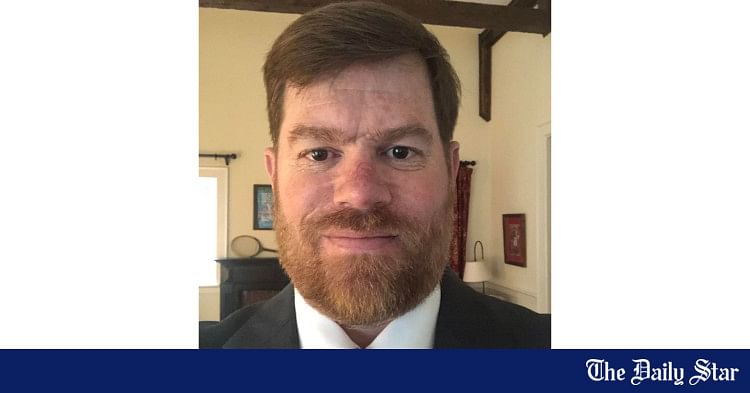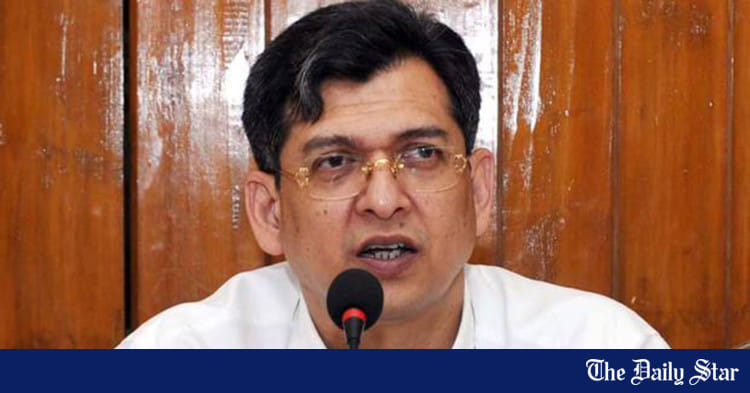Saif
Senior Member
- Joined
- Jan 24, 2024
- Messages
- 15,397
- Reaction score
- 7,874
- Nation

- Residence

- Axis Group


US role during 1/11: Prioritising polls over reforms was a ‘great mistake’
Washington made a “great mistake” during Bangladesh’s 2007-08 political crisis by prioritising election timelines over public aspirations and fundamental reforms, said former US diplomat Jon Danilowicz yesterday.
US role during 1/11: Prioritising polls over reforms was a ‘great mistake’
Says former diplomat

Jon Danilowicz
Washington made a "great mistake" during Bangladesh's 2007-08 political crisis by prioritising election timelines over public aspirations and fundamental reforms, said former US diplomat Jon Danilowicz yesterday.
Speaking at a discussion on "Navigating the Dynamics of Bangladesh-US Relations After the Mass Uprising," organised by the Centre for Governance Studies (CGS) at the BIISS Auditorium yesterday, he said the current interim government has taken a more effective approach by fostering national consensus on reform.
Danilowicz, who served as political and economic counsellor at the US embassy in Dhaka from 2007 to 2011, witnessed the military-backed caretaker government's tenure following mass protests against the BNP-Jamaat alliance.
He said the US and other stakeholders focused too heavily on the army's position rather than the demands of the Bangladeshi people.
"I am the first to acknowledge that the United States made great mistakes in the 2007-08 period," he said. "We put too much emphasis on elections and their timeline instead of ensuring lasting political reforms."
The caretaker government had initially pushed for reforms, but once it prioritised holding elections and stepping down, it lost leverage with political parties, he explained. Agreements between the caretaker government and political leaders were made in secret, leaving uncertainty about commitments from figures such as Sheikh Hasina.
"Our perception was that the Awami League and Sheikh Hasina had learned lessons and were committed to reforms," he said. "As history turned out, we were wrong. That miscalculation contributed to the gradual decline, culminating in the summer of 2024."
Danilowicz believes the current interim government, led by Chief Adviser Prof Yunus, has learned from past mistakes and is now pursuing genuine reforms. The US supports this agenda while refraining from setting an arbitrary election date.
Asked about Awami League's participation in the next election, he said, "That decision rests solely with the people of Bangladesh."
On accountability, he stressed that elections alone do not ensure it. "The International Crimes Tribunal process and legal mechanisms are also critical in holding individuals accountable."
Former US ambassador William B Milam also spoke at the event, moderated by CGS Executive Director Zillur Rahman.
Milam reaffirmed Washington's commitment to democracy and human rights in Bangladesh, regardless of which party holds power.
He said that while Donald Trump's foreign policy may have had some deviations, the US generally supports democracies, not autocrats.
Milam said his organisation has been working for five years to raise awareness among the American public about Bangladesh's democratic trajectory and secure funding to continue this effort.
Danilowicz highlighted the lack of accountability among Bangladesh's ruling parties as a major political challenge and warned that the country is facing an "information warfare" threat, much of it originating from India.
He urged Washington to engage with Bangladesh independently rather than viewing it solely through the lens of India.
Says former diplomat
Jon Danilowicz
Washington made a "great mistake" during Bangladesh's 2007-08 political crisis by prioritising election timelines over public aspirations and fundamental reforms, said former US diplomat Jon Danilowicz yesterday.
Speaking at a discussion on "Navigating the Dynamics of Bangladesh-US Relations After the Mass Uprising," organised by the Centre for Governance Studies (CGS) at the BIISS Auditorium yesterday, he said the current interim government has taken a more effective approach by fostering national consensus on reform.
Danilowicz, who served as political and economic counsellor at the US embassy in Dhaka from 2007 to 2011, witnessed the military-backed caretaker government's tenure following mass protests against the BNP-Jamaat alliance.
He said the US and other stakeholders focused too heavily on the army's position rather than the demands of the Bangladeshi people.
"I am the first to acknowledge that the United States made great mistakes in the 2007-08 period," he said. "We put too much emphasis on elections and their timeline instead of ensuring lasting political reforms."
The caretaker government had initially pushed for reforms, but once it prioritised holding elections and stepping down, it lost leverage with political parties, he explained. Agreements between the caretaker government and political leaders were made in secret, leaving uncertainty about commitments from figures such as Sheikh Hasina.
"Our perception was that the Awami League and Sheikh Hasina had learned lessons and were committed to reforms," he said. "As history turned out, we were wrong. That miscalculation contributed to the gradual decline, culminating in the summer of 2024."
Danilowicz believes the current interim government, led by Chief Adviser Prof Yunus, has learned from past mistakes and is now pursuing genuine reforms. The US supports this agenda while refraining from setting an arbitrary election date.
Asked about Awami League's participation in the next election, he said, "That decision rests solely with the people of Bangladesh."
On accountability, he stressed that elections alone do not ensure it. "The International Crimes Tribunal process and legal mechanisms are also critical in holding individuals accountable."
Former US ambassador William B Milam also spoke at the event, moderated by CGS Executive Director Zillur Rahman.
Milam reaffirmed Washington's commitment to democracy and human rights in Bangladesh, regardless of which party holds power.
He said that while Donald Trump's foreign policy may have had some deviations, the US generally supports democracies, not autocrats.
Milam said his organisation has been working for five years to raise awareness among the American public about Bangladesh's democratic trajectory and secure funding to continue this effort.
Danilowicz highlighted the lack of accountability among Bangladesh's ruling parties as a major political challenge and warned that the country is facing an "information warfare" threat, much of it originating from India.
He urged Washington to engage with Bangladesh independently rather than viewing it solely through the lens of India.




